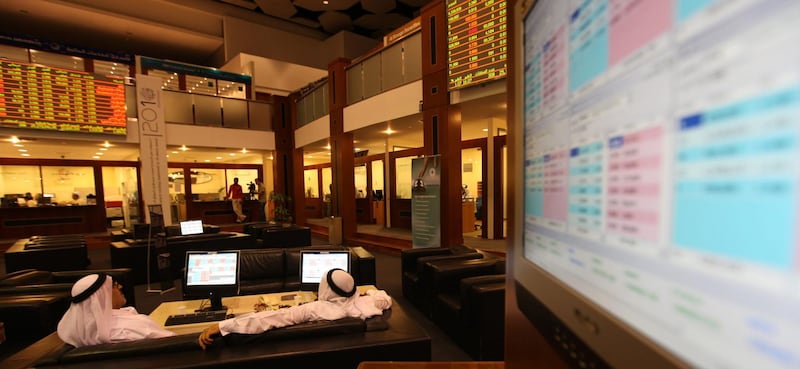Sukuk issuances by Arabian Gulf firms are set to decline this year from 2017 as geopolitical risks and the aftermath of the Dana Gas Islamic bond saga dampen investor appetite, according to S&P Global Ratings.
Islamic bond issuances in the first half of 2018 were "subdued" with five issuers raising around $2.6 billion, representing a 60 per cent decline to the $6.5bn in the same period last year, according to a report by the credit rating agency.
"While the market is talking about a few selective issuances in the second half the year, we still expect to see weaker issuance volumes relative to 2017, barring any unexpected improvement in the global and regional economic outlook," Timucin Engin, credit analyst at S&P Global, said.
In 2017 the Gulf region's corporate and infrastructure issuers raised more than $7.6bn from sukuk and this year's volumes will fall short of those levels.
_______________
Read more:
Bahrain to receive second economic package from the GCC
Sukuk issuance growth to remain ‘unspectacular’ on structural constraints, Fitch says
_______________
One main factor behind the decline is that international investors' perception of risk in the GCC is increasing due to geopolitics and the US re-imposing sanctions on Iran, the report said.
"We also believe that increasing global trade tensions are generally not supportive of emerging capital markets, including the GCC region," it said.
The legal problems surrounding the sukuk of Sharjah-based energy company Dana Gas, which reached a restructuring deal outside of a UK court with its creditors, has also been a wakeup call to the market.
"Dana Gas has also highlighted the risks related to enforceability of foreign judgement in emerging markets," S&P said. "We think that this will result in investors paying closer attention to the content of legal documents in the near to medium term and having lower risk appetite for GCC issues."
Also, many GCC corporate issuers have "diminished" funding needs as companies scale back on investments. The introduction of a five per cent VAT, energy subsidy reforms and other measures by the governments to enhance revenues have resulted in pressure and uncertainty in some sectors, the report said.
"Despite stronger oil prices, we believe many GCC corporates remain cautious, translating into muted investment programmes in some sectors," it said. "Expectations that global and regional interest rates will continue to normalise at higher levels is also causing issuers to pump the breaks on spending."







